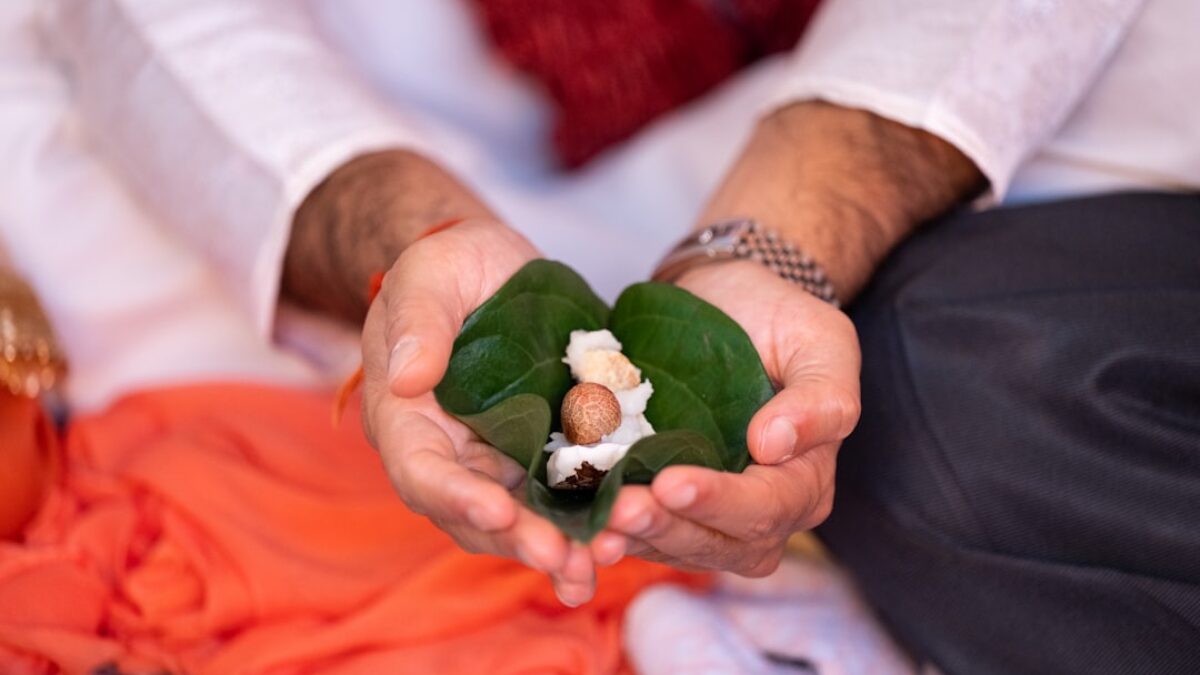Nourishing the Soul: Essential Self-Care Practices for Muslims
In today’s fast-paced world, self-care has become an essential component of maintaining a healthy lifestyle, particularly for Muslims navigating the complexities of modern life while striving to uphold their faith. The concept of self-care, while universal, reflects deeply on the practices and beliefs rooted in Islamic teachings. Indeed, nourishing the soul transcends mere physical wellness; it encompasses emotional, spiritual, and psychological well-being.
Understanding Self-Care in an Islamic Context
Self-care is often viewed through a Western lens, primarily emphasizing physical health, mental clarity, and emotional balance. In Islamic tradition, however, self-care is interwoven with spiritual fulfillment and communal responsibilities. This holistic approach recognizes that neglecting one’s spiritual state inevitably affects mental and emotional health.
Muslims are encouraged to seek a harmonious balance between their duties to God (Allah), family, and society. The Quran emphasizes the importance of the soul, as seen in verses that stress the necessity of nurturing it. Surah Ash-Shams (91:7-10) narrates that Allah swears by the soul and its Order, indicating the importance of cultivating righteousness.
Real-world examples abound within the Muslim community, showcasing self-care practices that align with Islamic principles. For instance, many Muslims find peace through the five daily prayers (Salah), which serve as moments of reflection and tranquility amidst daily chaos. This ritual not only fulfills a religious obligation but also acts as a potent form of self-care.
Spiritual Self-Care Practices
-
Prayer (Salah): The act of praying five times a day is more than a religious obligation; it is a profound form of self-care. Each prayer serves as a dedicated time to reconnect with Allah, offering a respite from daily stresses. Many practicing Muslims report feeling rejuvenated after Salah, experiencing a reduction in anxiety and fostering a sense of purpose.
-
Recitation and Reflection on the Quran: Engaging with the Quran creates a deep spiritual connection. Muslims today utilize apps like Quranly or Tafsir to facilitate daily recitation, enhancing understanding and reflection. This practice is often accompanied by journaling, allowing individuals to document their feelings and thoughts, leading to greater self-awareness and emotional clarity.
- Dua (Supplication): The power of Dua is often understated. Making personal supplications not only fosters a sense of closeness to Allah but also serves as a therapeutic outlet for Muslims. Many find solace through writing their Duas or creating a dedicated glass jar where they place written supplications, revisiting them over time.
Real-World Example: Fatima, a 28-year-old teacher, shares, “After a long day, Salah feels like my escape. It’s not just about praying; it’s my time to reflect, express gratitude, and seek guidance. I often feel emotionally lighter afterward.”
Mental and Emotional Self-Care Exercises
-
Mindfulness and Meditation: The practice of mindfulness is often equated with meditation in modern contexts. Many Muslims are turning to mindfulness techniques that are compatible with their beliefs. For instance, narrated moments of reflection during Salah can serve as a form of meditation. Furthermore, guided Islamic meditation apps are emerging, focusing on Islamic teachings to reinforce mental well-being.
-
Forgiveness: Holding onto grudges can weigh heavily on one’s heart. Islamic teachings emphasize forgiveness, both from Allah and amongst ourselves. Engaging in self-reflection, meditating on one’s shortcomings, and extending forgiveness can lead to emotional release, opening doors for personal growth.
- Community Engagement: Being part of a community is dynamic in Islamic culture. Many mosques offer Sister/Brotherhood programs where community members engage in discussion, support, and activities. This sense of belonging can significantly alleviate feelings of loneliness and promote happiness.
Authentic Review: Ahmed, a 34-year-old engineer, asserts, “Joining a local group at my mosque has changed the way I view my struggles. Talking to others who share similar challenges has made me feel less isolated.”
Physical Self-Care Practices
While spiritual practices are critical, physical self-care is equally important. The body is viewed as a trust from Allah, and taking care of it is a form of worship.
-
Nutritious Eating: The Sunnah encourages moderation in eating. The “one-third rule” (one-third food, one-third water, one-third air) is a principle many Muslims adopt. Cooking healthy meals based on Prophhetic traditions, such as a diet rich in dates, honey, and olive oil, promotes health.
-
Exercise: Physical activity is crucial for maintaining physical health. Based on the Sunnah, engaging in sports like swimming, archery, or horseback riding aligns with prophetic guidance. Today, the increasing interest in activities such as yoga, which can also incorporate meditation, indicates an evolving understanding of fitness that harmonizes with spiritual beliefs.
- Sleep Hygiene: Recognizing the importance of rest is a vital self-care aspect. Many Muslims aim to align their sleep patterns with Islamic recommendations, such as the practice of going to bed early following Isha prayers and aiming for the pre-dawn meal (Suhoor) during Ramadan.
Real-World Example: Layla, a fitness enthusiast and mother, shares her journey: “I’ve started incorporating daily walks after Maghrib prayers. It’s now part of my routine. I feel more energetic and at peace with myself.”
Practical Tips for Implementation
-
Set Clear Intentions: Begin by setting a clear intention to establish self-care practices rooted in Islamic teachings. This intention transforms routine actions into acts of worship, enhancing spiritual and emotional engagement.
-
Create a Schedule: Allocate specific times for spiritual and physical self-care. Incorporating time for Salah, Quran recitation, and mindfulness practices can ensure these activities become integral parts of daily life.
-
Limit Social Media Usage: The negative impact of excessive social media engagement can’t be ignored. Undertaking intentional breaks from social platforms can be profoundly restorative, allowing individual reflection and re-engagement with the real world.
- Engage in Arts and Hobbies: Creative outlets serve as effective self-care mechanisms. Consider pursuing activities like painting, writing, or gardening. These pursuits not only enhance emotional health but also connect individuals to their creative selves, fostering a sense of accomplishment.
Frequently Asked Questions (FAQs)
1. How can I incorporate self-care practices into my busy schedule?
Many Muslims successfully incorporate self-care by setting aside intentional time for spiritual activities. Begin with small increments, such as dedicating just five minutes daily for Dua or Quran recitation, and gradually expand this time as it becomes a habit.
2. What if I don’t feel motivated to engage in self-care?
The first step is understanding that motivation sometimes follows action. Commencing with minor tasks can gradually increase motivation. Additionally, reflecting on the spiritual benefits of self-care can spark the desire to engage.
3. Are there specific self-care practices recommended during Ramadan?
Absolutely! During Ramadan, adjusting sleep patterns, incorporating specific prayer times, and finding moments for quiet reflection can greatly enhance spiritual well-being. Also, ensure nutritious meals during Suhoor and Iftar to maintain physical health.
4. How can self-care improve my relationships with others?
Nurturing your own well-being fosters better emotional clarity and resilience, allowing for healthier interactions with others. When you feel balanced, you can engage more compassionately and effectively within your community.
5. Is professional therapy compatible with Islamic beliefs?
Seeking professional help can be aligned with Islamic teachings. Mental well-being is recognized in Islam, and professional therapy that respects Islamic values can provide guidance, support, and healing.
Conclusion
Nourishing the soul is fundamental in maintaining a balanced and fulfilling life. Muslims worldwide are increasingly understanding the importance of self-care, intertwining it with their spiritual beliefs. By incorporating practices that nurture the spirit, mind, and body, individuals can enhance their lives in profound ways.
As we embark on our self-care journeys, let us remember that each small step contributes to larger spiritual, emotional, and physical well-being. Ultimately, nourishing the soul transcends isolation and self-interest, leading us toward a connected, purposeful existence in alignment with our faith and the world around us.
Implementing self-care practices is not merely about personal gain; it is an act of obedience towards Allah, enhancing our spiritual journey, improving our relationships, and fostering a greater sense of peace within ourselves and our communities.
























Post Comment